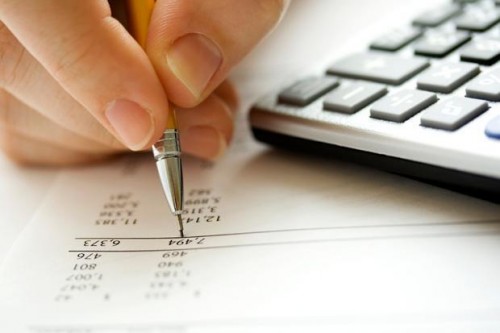What to Do if You’re Financially Overextended
Posted by : Premraj | Posted on : Thursday, August 14, 2014

Managing household finances isn’t easy. In fact, many people don’t actually learn how to manage their money; they figure it out through trial and error. Unfortunately, trial and error usually means lots of error, resulting in serious financial trials; and one of the biggest financial errors you can make is getting overextended.
The bad part is that you could be overextended and not realize it. For example, all of the following are signs that you could be financially overextended:
– More than 20 percent of your take-home goes toward paying creditors.
– You need a second job, or need to earn more money at your day job, to make ends meet.
– Excluding your mortgage or car payment, you couldn’t completely pay off all your debts within 12 months.
– You rely on credit cards for everyday expenses.
– You only pay the minimum, due each month.
– You have paid late.
– You have skipped payments and made double payments later.
– You don’t have any savings, or you have to dip into your savings to pay your monthly expenses.
– You are taking out new credit cards or loans to pay off old credit cards and loans.
– You are not sure how much you owe.
Even if you are paying your bills on time, the fact that you aren’t paying off your balances and are continually making new charges means that you are never really resolving the debt. It could mean that you are living beyond your means, especially if you rely on credit for everyday expenses. While that may not seem like a problem now an emergency, such as a job loss or unexpected medical bills, could send you into a tailspin.
If you are showing signs of being overextended, you need to take steps now to get your finances on track and prevent a financial crisis.
Getting on Track
1. Determine exactly how much you owe. As difficult as it may be to face the truth, you need to face that number so that you know what you are dealing with.
2. Look at your take-home pay and create a budget of your expenses – food, shelter, utilities and transportation. Do not include your credit cards or any loans, except for your mortgage and car payment, because you want to see how much of your income goes toward expenses. You should also not count any cash advances, loans, credit cards, or any other form of credit as income.
Ideally, after you cover your monthly expenses, you should have enough left over to pay your debts. If you do, then you can proceed to the next step. If not, then you may need to consider filing bankruptcy to take care of your debts. Don’t let the stigma associated with bankruptcy prevent you from giving it a try. When done right it not only fixes your finances, it can also improve your credit rating. A bankruptcy attorney can give you more information on the bankruptcy options, and help you determine which type is best for you.
3. Apply any surplus income toward paying off your debts. If you have been paying the minimum on each, continue doing so for all but one. Pay a little extra on that one, to zero out the balance as quickly as possible. Many experts recommend paying of the highest-interest loan or credit card first, however it might be easier to pay off the one with the lowest balance instead. Once you have paid off the one debt, take that money and apply it toward the next one to get that one paid off, and so on.
If you are not able to make more than the minimum payment on any of your debts, consider talking with a non-profit credit counseling service. These services can often negotiate with your creditors to get you a lower interest rate, and lower monthly payments, so that you can pay your debts off faster. Some services may set up a system where you pay them one monthly fee and they distribute it to your creditors for you.
Once you have paid off the bulk of your debts, you can then take the money you would normally spend on your debt payments and put it aside in savings.
 SU
SU REDDIT
REDDIT







